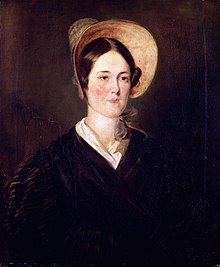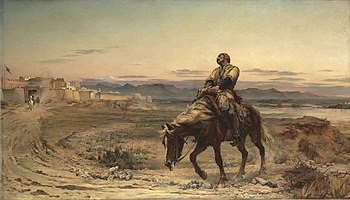Istanbul murder mystery "Tears of Pearl" by Tasha Alexander
At the end of the 19th century a newly wed English lady and her husband travel to Istanbul with the Orient Express. On the train some strange things happen but when they are in Istanbul just a few days they stumble upon a murdered harem girl who turns out to be the daughter of one of the English diplomats, the man who was also on the train.
All the famous sight are visited in the novel. Crossing the Bospurus, the lavish estates along the waterfront, Topkapi Palace, Aya Sofia, the Blue Mosque. And it is obvious the author studied Ottoman history well while doing research in town. (I once read a novel where the author mentioned the desert around the town and I was like WHAT???).
The mystery is not that plausible and I got a bit sick of the hints towards bedsport that was however never mentioned (seen) but this novel was still a good read because of the setting. I studied in Istanbul when I was young and this novel was bringing all the settings back in my mind's eye.
When you plan to go to Istanbul, have been there or are interested in Ottoman history this book is a good read. But as a novel no 1 of the series is a lot better (have not read the others yet).
Voor de originele post en de verkoopinformatie klik hier: http://www.dutchysbookreviewsandfreebooks.com/2020/02/istanbul-murder-mystery-tears-of-pearl.html
Review of "King of Kings" by Wilbur Smith - the forming of Ethiopia and the Italian colony Eritrea just after the Mahdi rebellion in Sudan
This one is situated in Cairo and the hills of Ethiopia on the border with what now is Eritrea I think. As I am teaching Dutch to ladies from Eritrea I had an extra investment in getting to know a bit more of the history of their country (and to tell them I read the book).
It is like all mr Smith's books an entertaining read. Some of the characters were a bit bland. I mostly liked Penrod the VC recipient who has to redeem himself and find a more caring part of his personality.
I wished I could have read part 1 first though as that would have made the story more a complete tale. Now the sister Rebecca was a bit of an enigma to me.
Voor de originele post en de verkoopinformatie klik hier: http://www.dutchysbookreviewsandfreebooks.com/2019/09/review-of-king-of-kings-by-wilbur-smith.html
Review of "In the Far Pashmina Mountains" - Raj India and the British Afghan war set in a historical novel
The lighthousekeeper's daughter part I did recognise as the real life story it was indeed inspired by but the Afghan disaster was new to me. It just made me realise that in our lifetime we made the same mistakes there.
I read that the author has been to India herself and that her ancestors were posted there. It is clear she did a lot of research in the subject.
The book makes a very interesting read because although it is a historical novel it still keeps pretty close to the historical facts and you really hope the best for the heroine.
This was the real lighthousekeeper's daughter who saved the people who were shipwrecked: https://en.wikipedia.org/wiki/Grace_Darling
More about the Anglo Afghan war here: https://en.wikipedia.org/wiki/First_Anglo-Afghan_War
William Brydon CB (10 October 1811 – 20 March 1873) was an assistant surgeon in the British East India Company Army during the First Anglo-Afghan War, famous for reportedly being the only member of an army of 4,500 men, plus 12,000 accompanying civilians, to reach safety in Jalalabad at the end of the long retreat from Kabul.
Voor de originele post en de verkoopinformatie klik hier: http://www.dutchysbookreviewsandfreebooks.com/2019/08/review-of-in-far-pashmina-mountains-raj.html
Review of "The Fragrant Concubine" by Melissa Addey - an Uygur legend and a conflicting Chinese one.
Lets start with a look at Wikipedia:
Fragrant Concubine
| Khoja Iparhan/Fatimah binti Ali Khojam 和卓.伊帕爾罕 | |
|---|---|

Portrait of the Fragrant Concubine by Giuseppe Castiglione
| |
| Born | 11 October 1734 |
| Died | 24 May 1788 (aged 53) |
| Spouse | Qianlong Emperor |
| House | Xojam (by birth) Aisin Gioro (by marriage) |
Chinese legend
Upon her arrival at the imperial palace, the Fragrant Concubine was given a garden and a luxurious room as a sign of the Qianlong Emperor's devotion. Homesick and distraught, she remained disconsolate as the emperor made ever-increasing efforts to recreate her distant village, building her a mosque, miniature oasis, and bazaar outside her windows in an effort to bring her happiness. Finally she relented and came to love him when he sent messengers to Kashgar to return with a jujube tree bearing golden fruit, and the Fragrant Concubine became the emperor's cherished consort until her death. An enduring symbol of national unity and reconciliation, her body was brought back to her home of Kashgar, where she is now entombed, in a procession of 120 bearers in a journey that took over three years.
Uyghur legend
Contemporary Uyghur renditions of the legend are considerably less romantic. She was the child of the ruler of the Yarkent Khanate and her name was Nur Ela Nurhan.[1] Taken away to the imperial palace in Beijing by the Qianlong Emperor, Iparhan arms herself with daggers up her sleeves, on guard against the hated advances of the emperor, until finally she was poisoned.[2]Apak Khoja and Fragrant Concubine Tomb
Imperial Consort Rong's tomb in the Eastern Qing tombs
Source Wikipedia: https://en.wikipedia.org/wiki/Fragrant_Concubine
The Novel "The Fragrant concubine" by Melissa Addey
In the story Iparhan is a Muslim princess who sees her country invaded by the Chinese on the eve of her wedding and in no time she looses her home and her parents. Longing to take revenge on the emperor she hopes to swap places with a cousin who is sent to the Chinese court as a concubine for the emperor. But when that is no longer possible she captures a beggar girl who looks remarkably like her.
Someone once said that revenge is a double-edged sword. Her drive for revenge turns Iparhan into a crazy woman, I think, who destroys everyone who cares for her, and becomes a ruthless killer.
The girl she captures is dead poor and in the beginning does not object that much to the idea of a life in luxury but then is more and more scared by the madwoman.
Things get really complicated when Hidligh is at court and realises she loves the emperor and made good friends and wants to do everything to keep them save but on the other hand will lose her own life if it ever comes clear she was send to the palace to spy. The result is a very thrilling tale with dangers lurking everywhere.
I am not so familiar with Chinese history so the whole setting was intriguing as well. The Forbidden City is nothing like a Middle Eastern harem: all the concubines have their own palaces and most of the time the emperor will come to have dinner there and some horizontal sport. The women are also less secluded. What sounded so alien to me was that one's name changed with promotions and the emperor was not mentioned by his name after he had become emperor.
Life could be tragic or blissful depending on what the women wanted: some are completely forgotten by the emperor and really lonely and miserable others share a happy lesbian life glad he is not paying them any attention. Others cling to power because they want their child to be the next emperor. Or like the Empress and Hidligh are in love with the man but that is not necessary mutual.
In the end the writer composed the solution for both legends.
I really liked the novel. The story is thrilling and nerve-racking and the cultural setting is interesting.
A 5 stars out of 5.
Voor het originele artikel en de verkoopinfo klik hier: http://www.dutchysbookreviewsandfreebooks.com/2019/04/review-of-fragrant-concubine-by-melissa.html

Interessant artikel? Deel het eens met uw netwerk en help mee met het verspreiden van de bekendheid van dit blog. Er staan wellicht nog meer artikelen op dit weblog die u zullen boeien. Kijk gerust eens rond. Zelf graag wat willen plaatsen? Mail dan webmaster@vreemdelingenrecht.com In verband met geldwolven die denken geld te kunnen claimen op krantenartikelen die op een blog als deze worden geplaatst maar na meestal een dag voor de krantenlezers aan leeswaardigheid hebben ingeboet terwijl wij vreemdelingenrecht specialisten ze soms wel nog jaren gebruiken om er een kopie van te maken voor een zaak ga ik over tot het plaatsen van alleen het eerste stukje. Ja ik weet het: de kans dat u doorklikt is geringer dan wanneer het hele artikel hier staat en een kopie van het orgineel maken handig kan zijn voor uw zaak. Wilt u zelf wat overnemen van dit weblog. Dat mag. Zet er alleen even een link bij naar het desbetreffende artikel zodat mensen niet alleen dat wat u knipt en plakt kunnen lezen maar dat ook kunnen doen in de context. Subscribe to Vreemdelingenrecht.com blog by Email








Geen opmerkingen:
Een reactie posten